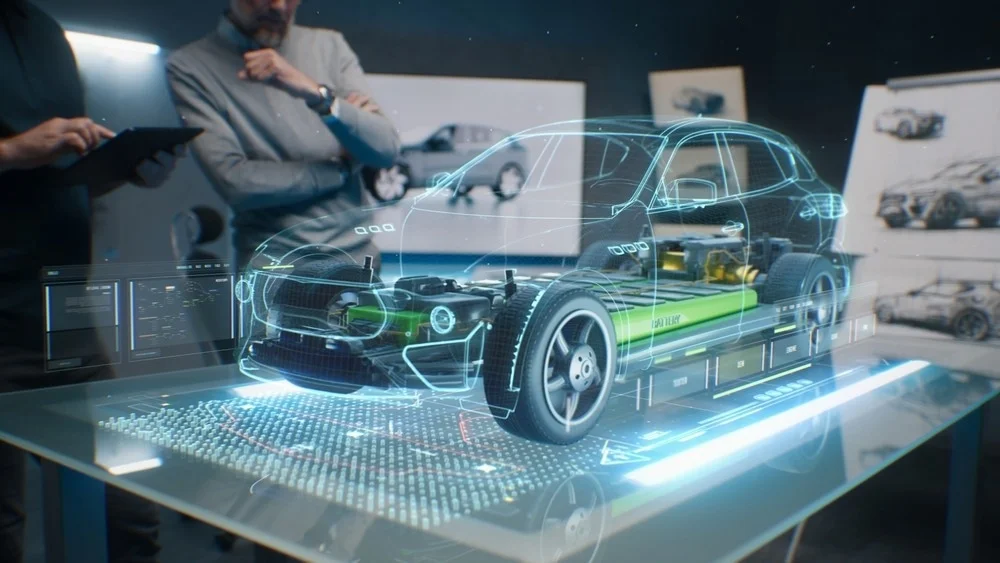The automotive sector is undergoing a transformation driven by technology, sustainability, and changing consumer expectations. Automakers are embracing advanced engineering and design to craft vehicles that meet modern demands while anticipating the needs of the future. Below are the key trends shaping the landscape of the automotive industry.
Electrification: A Defining Force in Modern Mobility
The shift toward electric vehicles (EVs) is reshaping transportation, as manufacturers invest in battery technology, charging infrastructure, and energy efficiency. Advancements in lithium-ion batteries, solid-state alternatives, and fast-charging capabilities are reducing range anxiety, making EVs more practical for everyday use. Automakers are also refining aerodynamics and lightweight materials to enhance energy efficiency. Meanwhile, the expansion of charging networks and innovations in wireless charging are addressing one of the main barriers to EV adoption.
Autonomous Driving: Pushing the Boundaries of Automotive Technology
Self-driving technology is advancing with the integration of artificial intelligence, machine learning, and sophisticated sensor systems. Automakers and tech companies are developing vehicles capable of interpreting traffic conditions, detecting obstacles, and making real-time driving decisions. While full autonomy remains a work in progress, features such as adaptive cruise control, automated parking, and lane-keeping assistance are already redefining the driving experience. The road ahead includes further refinements in vehicle-to-vehicle (V2V) and vehicle-to-infrastructure (V2I) communication, allowing cars to interact seamlessly with traffic systems and road networks.
Sustainability and Eco-Friendly Manufacturing
Sustainability extends beyond electric propulsion, influencing every aspect of automotive production. Automakers are prioritizing recyclable materials, reducing emissions in manufacturing, and adopting more efficient supply chain practices. Innovations in bio-based composites, carbon-neutral production techniques, and water-saving processes are reducing the environmental impact of vehicle manufacturing. Additionally, companies are exploring alternative fuels, such as hydrogen and synthetic fuels, to provide additional solutions for sustainable mobility.
Connectivity: The Digital Evolution of the Automobile
Vehicles are becoming more intelligent, offering seamless connectivity that enhances convenience, safety, and entertainment. Features such as over-the-air software updates, voice-controlled assistants, and advanced infotainment systems are creating an integrated digital experience. Connected cars are also playing a crucial role in predictive maintenance, with onboard diagnostics capable of detecting potential issues before they arise. The integration of 5G networks is further enhancing vehicle-to-everything (V2X) communication, enabling real-time data exchange between cars, infrastructure, and smart city systems.
Performance Engineering: Merging Power with Efficiency
Advancements in automotive engineering are allowing manufacturers to push the boundaries of performance while maintaining efficiency. Turbocharged engines, hybrid powertrains, and regenerative braking systems are enhancing fuel economy without compromising on power. In the luxury and sports car segment, the integration of lightweight carbon fiber components and active aerodynamics is redefining speed and handling. Engineers are also refining suspension systems, adaptive damping, and precision steering to offer an unparalleled driving experience across different terrains.
Safety Innovations: A Commitment to Protecting Drivers and Passengers
Automotive safety has evolved beyond airbags and seatbelts, with modern vehicles incorporating cutting-edge protective measures. Adaptive driver-assistance systems (ADAS) use sensors, cameras, and radar to prevent collisions and enhance driver awareness. Emergency braking, blind-spot monitoring, and pedestrian detection technologies are becoming standard, significantly reducing accident risks. Manufacturers are also investing in structural reinforcements and crumple zones that absorb impact forces, improving overall crash safety.
Luxury and Customization: A Personalized Approach to Design
The modern automobile is no longer just a mode of transportation—it is an expression of individuality. Automakers are offering bespoke customization options, allowing customers to select materials, interior trims, and technology features tailored to their preferences. Handcrafted interiors, ambient lighting configurations, and premium sound systems create a refined atmosphere that enhances every drive. Meanwhile, digital displays and augmented reality interfaces provide a sophisticated blend of technology and luxury, ensuring an experience that is as immersive as it is practical.
The Road Ahead for the Automotive Industry
The automotive sector continues to evolve, shaped by cutting-edge technologies, environmental considerations, and consumer expectations. Electrification, connectivity, and autonomous systems are defining the next era of mobility, while advancements in safety, performance, and sustainability ensure a driving experience that meets modern demands. As manufacturers push the boundaries of engineering and design, the future of the automobile promises to be both intelligent and inspiring.

